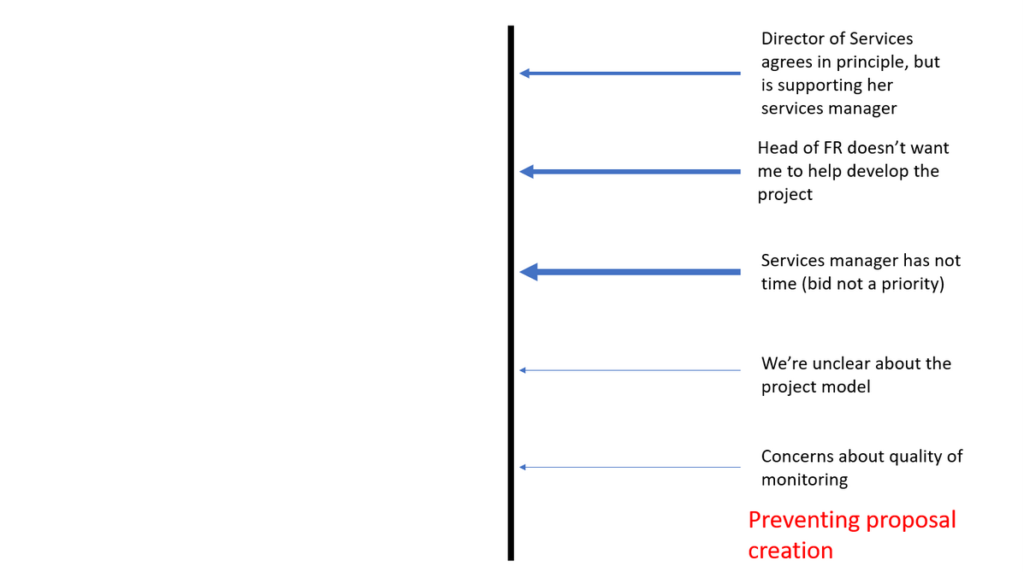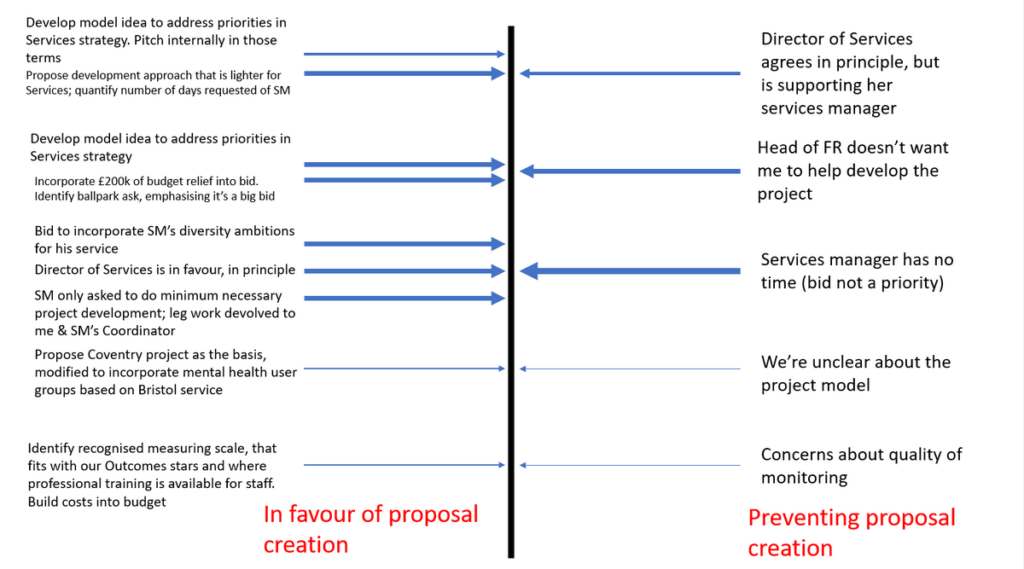This area of the site was written for very experienced trust fundraisers.
Problem solving

Introduction
This video explains why problem solving skills are so valuable and why you shouldn’t worry too much about problems, but even see them as opportunities. It gives a framework to work within. It explains why it is so important to correctly identify the problem in the first place.
Analysing the causes of problems
This video details many techniques to identify the causes of the problem.
Solutions to the problem; a framework for managing the solution
This video details ways of developing and then managing a solution.
Covering the breadth of techniques to solve a problem
In How to Make Collaboration Work, David Strauss lists 64 different things (mostly in pairs of opposites) that you can try in developing a solution. He says that people who apply more of these are better problem solvers. So, his list might provide a bit more inspiration:
Overarching approaches
- Change
- Vary
- Cycle
- Repeat
“Master” approaches
- Build up / Eliminate
- Work forwards / Work backwards
Strategies to manipulate sets of things
- Associate / Classify
- Generalise / Exemplify
- Compare / Relate
Strategies for involvement
- Commit / Defer
- Leap in / Hold back
- Focus / Release
- Force / Relax
- Dream / Imagine
- Purge / Incubate
Strategies for manipulating information
- Display / Organise
- List / Check
- Diagram / Chart
- Verbalise / Visualise
Strategies for information retrieval
- Memorise / Recall
- Record / Retrieve
- Search / Select
Strategies for dealing with the future
- Plan / Predict
- Assume / Question
- Hypothesise / Guess
- Define / Symbolise
- Simulate / Test
Strategies for Physical manipulation
- Play / Manipulate
- Copy / Interpret
- Transform / Translate
- Expand / Reduce
- Exaggerate / Understate
- Adapt / Substitute
- Combine / Separate
Strauss observes that what holds people back, in his experience, is having too much focus on a particular set of strategies as the “go to” solution for everything.
Forcefield analysis
The video mentions this but doesn’t go into depth. This is a good management technique to apply when you reach the stage of evaluating which solution, or set of solutions, you’d need to use to establish real impetus towards a solution.
You draw a line down the middle of a sheet of paper. On one side, you list the obstacles that you need to overcome and you sign them suitable weights, by drawing arrows where the thickness shows the weight of the resistance.

On the other, you do the same, focussing on the things that are in favour of the thing you want to make happen. Again, the weights illustrate how powerful you think each is:

The nice thing about this approach is that you can easily see, by eye, where the problems might be and where you maybe are doing more than you need and could cut corners if necessary.
Resources
Problem solving courses are starting to appear. I haven’t been on any, but they could be worth exploring.
I’ve found using a coach quite helpful as a way of discussing problems that I didn’t feel I could raise straightforwardly with my manager. It’s not cheap, but definitely a way to move things on. this website is very focussed on trust fundraising skills, but there are other, more general work skills which I don’t try and cover. I’ve found that coaching is particularly good for these. (For example, it’s helped me with motivation, time management/prioritization, general management issues.)


